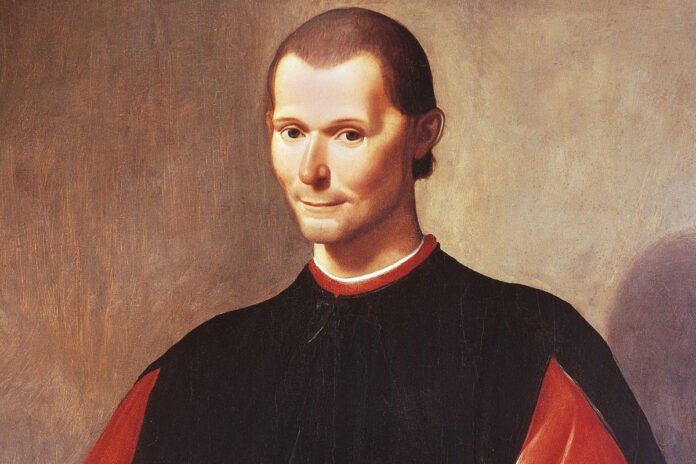Niccolò di Bernardo dei Machiavelli (3 May 1469 – 21 June 1527) was a Florentine diplomat, philosopher, historian, and author during the Italian Renaissance. He is most famous for his political treatise The Prince (Il Principe), written around 1513 but not published until 1532, five years after his death. Machiavelli is often referred to as the father of modern political philosophy and political science due to his pragmatic, sometimes controversial, views on power and governance. His work laid the foundation for the study of realpolitik and the relationship between rulers and the state.
Introduction
Niccolò Machiavelli, often referred to as the father of modern political theory, has left a legacy that continues to spark debate and admiration across the world. Born in 1469 in Florence, Italy, Machiavelli’s work on politics, leadership, and power forever changed how we view governance. His most famous work, The Prince, is still required reading for anyone interested in the intricate dance of power and politics.
But Machiavelli wasn’t just about cunning strategies and ruthless decision-making. His ideas about pragmatism, morality, and governance go far beyond the harsh “Machiavellian” label often slapped onto manipulative behavior. In this article, we will explore Machiavelli’s life, his most important works, and the profound impact his ideas continue to have on politics today.
Who Was Niccolò Machiavelli?
A Brief Overview of His Life
Niccolò Machiavelli was born into a politically active family in Florence during the Renaissance. His early career as a diplomat exposed him to the intricacies of European politics, and his observations during these years laid the foundation for his later works. Machiavelli’s rise and fall within the political ranks of Florence, marked by his involvement in key diplomatic missions, eventually led to his exile after the Medici family regained power.
Machiavelli’s life was shaped by political turmoil, particularly the rise and fall of republics and tyrants. His personal experience in the political world gave him unique insights into how power works and how leaders can maintain or lose control.
Machiavelli’s Key Works
The Prince: The Foundation of Political Theory
The most famous of Machiavelli’s works, The Prince, is a treatise on political power. Published posthumously in 1532, it presents advice to rulers on how to maintain their power and secure their state. While many of his suggestions seem ruthless—such as advocating for deceit, manipulation, and the use of fear—Machiavelli’s core idea was simple: the ends justify the means.
Machiavelli famously wrote, “It is better to be feared than loved, if you cannot be both.” This notion of practical leadership, free from the constraints of traditional morality, has contributed to the lasting debate over whether Machiavelli was a cynic or a realist.
The Discourses: Republicanism and the Strength of the People
While The Prince focuses on the tactics for rulers, The Discourses presents a broader view of governance. In this work, Machiavelli explores the functioning of republics and the importance of civic virtue. He stresses that the strength of a republic depends on the involvement of its citizens, arguing that active participation in politics is essential for a thriving state.
Machiavelli’s republican ideas are sometimes overshadowed by the ruthless strategies in The Prince, but his work on republics is just as influential. He argued for the balance of power between different branches of government, anticipating many modern political systems that emphasize checks and balances.
Machiavelli’s Political Philosophy
Realism vs. Idealism: Understanding Machiavelli’s Approach
One of the most intriguing aspects of Machiavelli’s thought is his commitment to political realism. He believed that politics should be based on the realities of human nature, rather than idealistic visions of how people ought to behave. This led him to advocate for practical, often harsh measures that prioritize the stability of the state above moral concerns.
For Machiavelli, leaders must understand the unpredictable nature of power and be willing to adapt. He famously argued that fortune (luck) and virtù (skill and decisiveness) combine to determine the success of a ruler, but it is the ruler’s ability to navigate these forces that ultimately matters.
The Role of Morality in Politics
Machiavelli’s ideas are often criticized for their perceived cynicism. By arguing that rulers should use whatever means necessary to achieve and maintain power, including deceit and violence, he challenges traditional moral perspectives. However, Machiavelli was not advocating for immorality for its own sake. Instead, he believed that the survival and success of the state sometimes required difficult, morally ambiguous decisions. In his view, a ruler who upholds traditional moral values might be doomed to failure if they are unable to adapt to changing political realities.
Machiavelli’s Influence on Modern Politics
Impact on Political Theory
Machiavelli’s influence stretches far beyond the Renaissance. His works have been widely read and interpreted by political leaders, thinkers, and strategists throughout history. The modern world has drawn from his concepts of power, leadership, and realpolitik.
For example, the Machiavellian approach to power is evident in the strategies of many political leaders. His ideas about the use of force, the importance of appearing virtuous while acting pragmatically, and the need for a ruler to maintain control through a mix of fear and respect have influenced leaders ranging from Napoleon Bonaparte to modern-day political figures.
Machiavellianism in Popular Culture
In contemporary times, the term “Machiavellian” has taken on a negative connotation, often used to describe manipulative or cunning individuals. However, this simplification overlooks the depth of Machiavelli’s ideas. While some of his tactics may seem ruthless, they reflect his understanding of the harsh realities of leadership and statecraft.
Frequently Asked Questions
1. What was Niccolò Machiavelli known for?
Machiavelli is best known for his political treatises, particularly The Prince, which outlines strategies for rulers to gain and maintain power.
2. Was Machiavelli a cynic or a realist?
Machiavelli is often seen as a political realist. He believed in adapting to the realities of power, rather than adhering to idealistic views of how rulers should behave.
3. How did Machiavelli influence modern politics?
Machiavelli’s ideas on realpolitik and leadership have influenced political thought, with many leaders drawing on his ideas about power, pragmatism, and statecraft.
4. What is Machiavellianism?
Machiavellianism refers to a personality trait characterized by manipulation, deceit, and a focus on self-interest, often attributed to Machiavelli’s political strategies in The Prince.
Wrapping Up: The Enduring Legacy of Machiavelli
Niccolò Machiavelli remains one of the most influential figures in political thought. His works, especially The Prince, have continued to resonate through the ages, providing valuable insights into leadership, power, and statecraft. While his ideas may seem harsh, they reflect a pragmatic view of the complex world of politics.
Machiavelli’s impact is undeniable, and his lessons on power continue to shape how we think about leadership today. Whether viewed as a cynic or a realist, his work remains a cornerstone of political philosophy and a guide to understanding the nature of power.




